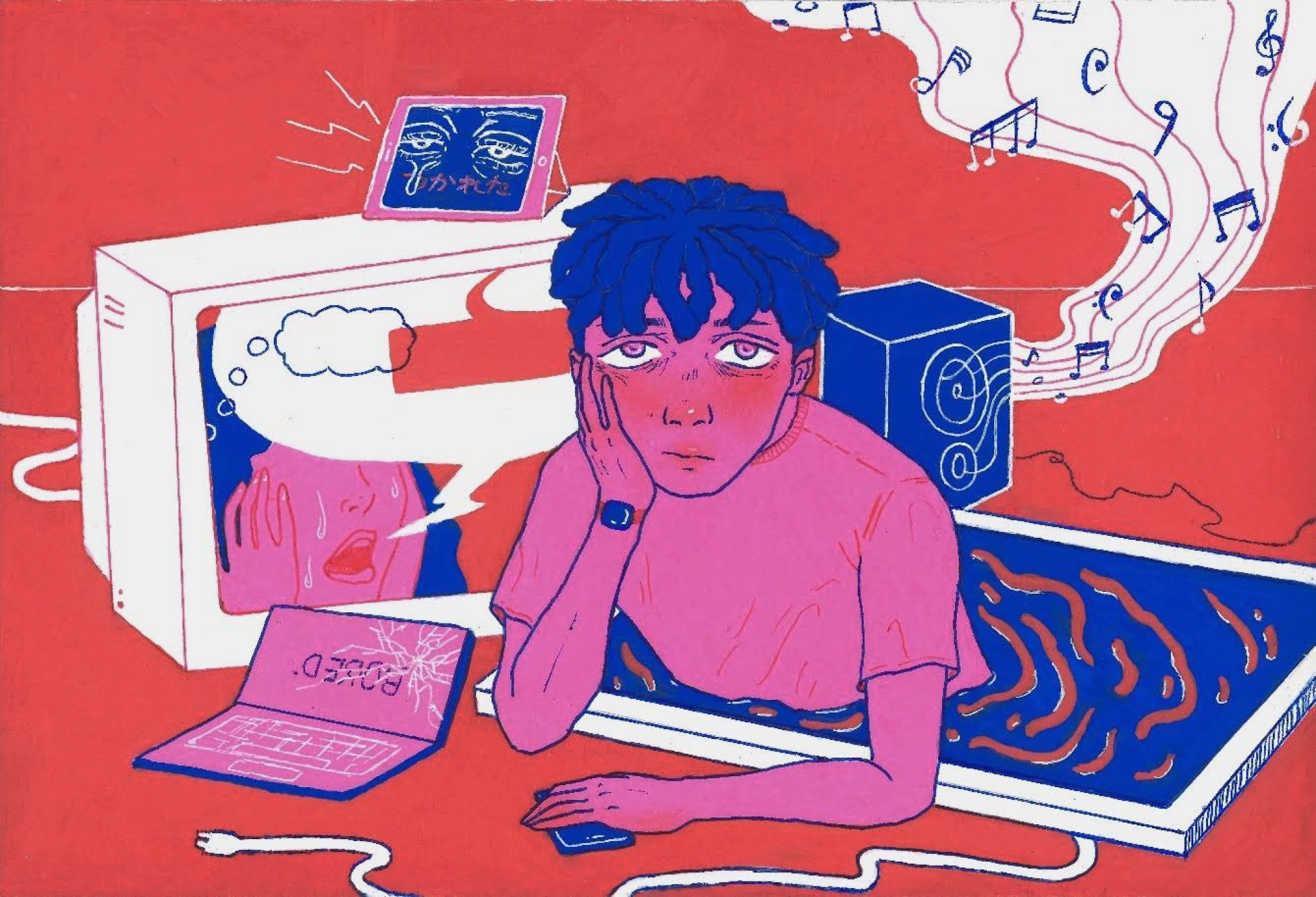Thirty years ago, watching a movie was no easy task. You had to get up, ride your bike to the nearest video store, look around for the movie you wanted, and have a conversation with the person at the front desk as you paid for your rental. Now, having been gifted with resources such as Netflix or Amazon Prime, all it takes to watch a three-hour work of art is a couple clicks of the remote. Especially now, when school has become yet another online activity, the harmful effects of the constant bombardment of media are more obvious than ever. But as terms such as “DVD,” “library,” and “late fee” are replaced with “browsing,” “Hulu,” and “too long,” a new question is conceived. Is the easy accessibility of movies and TV making this form of media less enjoyable?
At first glance, one might laugh and dismiss the question — why would easier access diminish one’s enjoyment? Diversity and variety of the content increase one’s eagerness to stream a show or movie. More options lead to a better choice, right?
A 2014 study conducted by Psychology Today compared people given different decisions. One group of people were given two options and one choice, while the second group was given five options and one choice. There have been multiple studies done in a similar vein, with an overwhelming majority of them coming to the exact same conclusion. The people given two options were able to choose more effectively, and felt no regrets or confusion in doing so. On the contrary, the people given several options spent a much longer amount of time choosing, and in the end, came out frustrated and dissatisfied with their choice, questioning whether or not it was the right one. According to the study, humans are incapable of effectively managing more than a couple of options. We fear choosing incorrectly, even if we end up picking the same product in the five option study as in the two option one.
How does this relate to media? Thanks to streaming apps, we are constantly showered with choice. Dozens of movies float around in our recommended sections, and since we can’t watch them all, they begin to pile up in our “watch later” list. Think of it like this. You allow yourself five dollars to spend on a movie. Now if you go to the library or the video store, chances are, you’ve already picked the movie you want to rent. Spending hours in a hot, packed store isn’t your idea of a great Friday night. You grab your movie and head home, unaware of the dilemma you may have faced had you chosen to stream a film instead. Had that been the case, had you turned on the TV only to be drowned in the hundreds of options, how could you ever have chosen just one movie? This choice is exactly what it sounds like: stressful. An unnecessary, anxiety-inducing decision. And in the end, when you finally choose, you aren’t as happy with your choice as you might have been in the previous example. As you sit there, watching Star Wars, you are left wondering; what if Star Trek is better?
Once we make that choice, we will find our overall pleasure in watching the movie quite diminished, as we doubt our decision, speculating over what may have happened had we picked the other film.
With all this is mind, it’s important not to completely disregard the benefits of streaming. Thanks to media services like Netflix, rising artists have more opportunities to flaunt their talents. The increase in the amount of media hasn’t come from nowhere, but from young and upcoming artists who have been given the chance to succeed, specifically artists from more traditionally oppressed cultures and backgrounds. Until now, the movie industry has had the unfortunate tendency of solely producing stories from the straight, white, male point-of-view. However, as a result of the expansion of the film industry, a more diverse community has emerged, and more than ever, we can find there is a relatable story for most people. Furthermore, the variety in choice gives us the means to explore new things. We are able to experience different stories, and understand the experiences and opinions of people otherwise unbeknownst to us. As media diversity has suddenly become possible, cultural education — appreciation rather than appropriation — has gained potential.
In the end, it comes down to us. Our choice, and our security in it. Movies are not option C on a multiple choice test, they are an ungraded free-response. They exist to entertain, educate, and carve a path in history. It’s true that the endless choices increase the likelihood of an unfulfilling film-viewing experience. But it’s also true that we put too much pressure on ourselves to exercise the “right choice.” Watching a movie or a show should not become a chore. Cut yourself some slack, trust your instincts, and know that every single movie is an experience you deserve.





